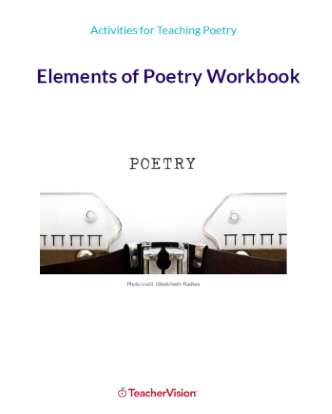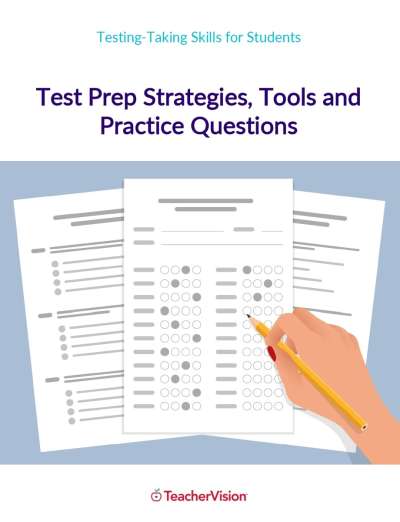Activities
What Is a Poem, Anyway?
Materials: research materials, tape or CD player, and audio recordings
What is a poem? Invite students to think about this question. Encourage them to use textbooks, library books, and other sources to help them explore.
| • | Write the question on the board, and ask the class to brainstorm a list of ideas. |
| • | Divide students into pairs or small groups. Give each group a different writing sample. Examples include: a journal entry, a narrative poem, a limerick, a letter, an e. e. cummings poem, a short biographical sketch, and several jazz and hip-hop songs. (If possible, provide students with lyrics and recordings.) |
| • | Have each group work together to decide whether their writing sample is a poem. Ask them to list reasons for their conclusion. |
| • | Have each group present their ideas to the class. |
| • | Finally, write a class definition of the word "poem." |
Are You a Poet?
Materials: Writing a Poem Activity Sheet
Remind students that there are many different kinds of poems.
| • | Divide the class into pairs or small groups and distribute the Writing a Poem Activity Sheet. |
| • | Challenge each group to choose a topic. |
| • | Ask each student to write a poem about the group's topic using a style from the activity sheet. |
| • | When students finish a first draft of their poem, have them peer-edit with other members of their group. Then have students revise their poems. |
Invite students to use research materials to find out about other poetry forms and styles. Then challenge students to write their own examples.
Use library books, encyclopedias, and Internet sites to research other types of poetry.
Select four additional forms or styles and record notes about each.
- Define each style of poetry you find.
- Write your own short poem for each kind of poetry.
- Share your poems with the class.
Cracking the Code
Materials: a poem of your choice
Choose a poem that has lots of interesting language and imagery, such as Robert Frost's "The Road Not Taken" or Rudyard Kipling's "If." Then invite the class to work together to "crack" the poem's "code."
| • | Distribute copies of the poem or display it on the overhead projector. Ask students to work in pairs or small groups. |
| • | Ask students to use what they know to answer questions such as:
|
Who's That Poet?
Materials: research materials such as books, encyclopedias, and Internet sites
Challenge students to write brief biographies of some of history's most famous poets.
| • | Provide students with a list of poets. This list might include William Blake, Emily Dickinson, and Maya Angelou. |
| • | Divide the class into pairs or small groups. Invite each group of students to select one poet to research. |
| • | Ask students to use research materials to create a biographical sketch of their poet. |
| • | If necessary, prompt students with questions such as:
|
| • | Groups should share their biographical sketches, visual aids, and favorite poems with the class. |




